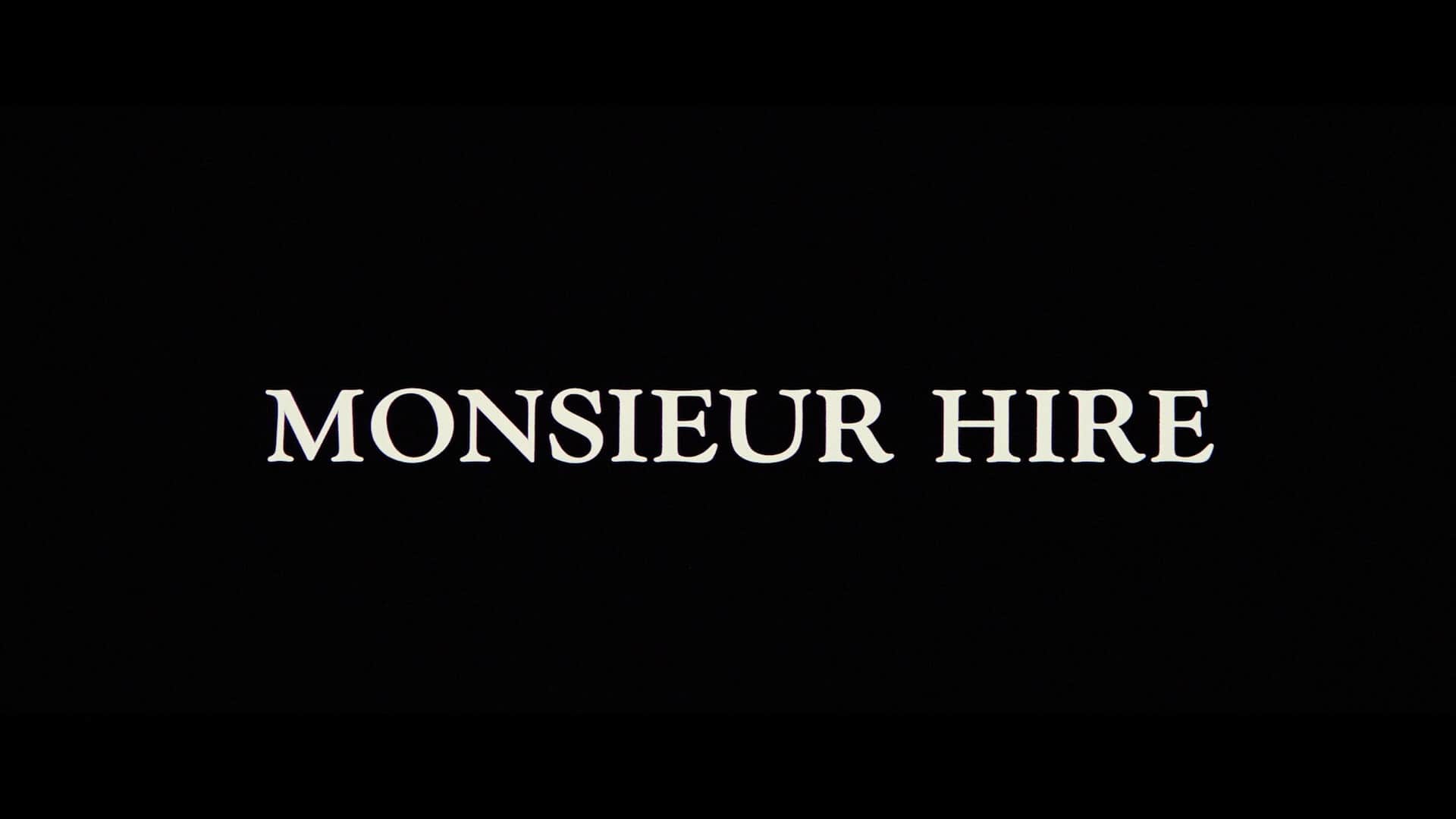Monsieur Hire’s subtlety and allure resonate across the global cinematic landscape, captivating its audience while refining the essence of French cinema.
![Monsieur Hire (1989) [Cohen Collection Blu-ray review] 2 Monsieur Hire (1989) [Cohen Collection Blu-ray review] 1](https://andersonvision.com/wp-content/uploads/2023/05/monsieur-hire-blu-ray-1.jpg)
Monsieur Hire walked, so Leon could run
“Monsieur Hire”, adapted from the novel “Les Fiançailles de M. Hire” by Georges Simenon, introduces us to the eponymous character, a reclusive, middle-aged man brilliantly portrayed by Michel Blanc. Despite living in solitude, Monsieur Hire finds himself infatuated with his young neighbor Alice, played by Sandrine Bonnaire. A murder in the community sets the stage for a tense and poignant drama that explores themes of voyeurism, loneliness, and the human yearning for connection.
Leconte’s cinematic vision and narrative style set this film apart, transforming it from a straightforward adaptation into an atmospheric masterpiece. His keen eye for detail, combined with the rich, dimly-lit cinematography of Denis Lenoir, creates an immersive noir ambiance that supports the story’s suspenseful undertones. The film’s minimalist score by Michael Nyman emphasizes the narrative’s silent moments, further heightening its dramatic intensity.
Blanc’s nuanced performance as Monsieur Hire is deeply moving. His portrayal of the character’s internal struggle – caught between his yearning for connection and his fear of rejection – is compelling. Simultaneously, Bonnaire’s captivating portrayal of Alice is layered, balancing vulnerability and ambiguity, which makes their interactions even more intriguing.
![Monsieur Hire (1989) [Cohen Collection Blu-ray review] 4 Monsieur Hire (1989) [Cohen Collection Blu-ray review] 3](https://andersonvision.com/wp-content/uploads/2023/05/monsieur-hire-blu-ray-2.jpg)
Monsieur Hire as modern Noir
What makes “Monsieur Hire” such a significant contribution to French cinema, however, extends beyond its storyline and performances. Its true contribution lies in its exploration of French society’s underbelly and its unique presentation of the classic noir genre.
“Monsieur Hire” represents a departure from the typical portrayals of French society, often romanticized in international cinema. Instead, it provides a more nuanced and less flattering picture of French urban life. The film addresses voyeurism, alienation, and judgment, all of which contradict the idealized depiction of French culture often portrayed in popular cinema. By acknowledging these complexities, “Monsieur Hire” contributes a layer of realism to the French film landscape, a brave departure from the mainstream.
Moreover, “Monsieur Hire” reinvents the noir genre within French cinema. While film noir is traditionally associated with Hollywood, Leconte successfully introduces and adapts this style to fit a French narrative. The film’s atmospheric lighting, suspenseful plot, and morally ambiguous characters recall classic noir elements, but they are redefined through a distinctly French lens.
![Monsieur Hire (1989) [Cohen Collection Blu-ray review] 6 Monsieur Hire (1989) [Cohen Collection Blu-ray review] 5](https://andersonvision.com/wp-content/uploads/2023/05/monsieur-hire-blu-ray-3.jpg)
The French Cinematic Psyche at the End of the Cold War
Furthermore, the narrative’s focus on the complex psyche of its central character aligns more with French cinematic traditions than American noir. In true French style, “Monsieur Hire” is less about the crime and more about the characters involved, offering an introspective exploration of human nature and societal judgment.
“Monsieur Hire” challenges the audience’s preconceived notions and encourages them to empathize with its unconventional protagonist. This ability to provoke thought and induce emotional response is a testament to its power as a piece of cinema.
![Monsieur Hire (1989) [Cohen Collection Blu-ray review] 8 Monsieur Hire (1989) [Cohen Collection Blu-ray review] 7](https://andersonvision.com/wp-content/uploads/2023/05/monsieur-hire-blu-ray-4.jpg)
Why I liked it
“Monsieur Hire” is more than a noirish suspense drama; it’s a masterfully crafted piece of French cinema that offers an in-depth exploration of societal norms and human behavior. The film’s ability to merge a suspenseful narrative with profound character study and thought-provoking themes showcases the versatility and depth of French cinema. Its significant contribution lies in its courageous depiction of the less glamorous aspects of French society and its successful adaptation of the noir genre into a French context.
Patrice Leconte’s “Monsieur Hire” is an exceptional film that deserves to be recognized as a crucial piece of French cinema. Its nuanced storytelling, atmospheric cinematography, and compelling performances make it a cinematic experience not to be missed. It is a testament to the transformative power of cinema – a power that transcends language and culture, captivating audiences worldwide. It’s this global appeal that makes “Monsieur Hire” a true gem in the world of international cinema.
![Monsieur Hire (1989) [Cohen Collection Blu-ray review] 10 Monsieur Hire (1989) [Cohen Collection Blu-ray review] 9](https://andersonvision.com/wp-content/uploads/2023/05/monsieur-hire-blu-ray-5.jpg)
Cohen Collection brings French Crime to the Blu-ray era
Monsieur Hire has never looked better on Blu-ray. For a rather short film, the A/V Quality gets to remain consistent with a robust 1080p transfer and supportive Dual Mono audio track. The special features are strong with a new interview, trailers and a robust commentary track.
I hope that the younger readers that enjoy crime stories dare to break out of their comfort zones with this film. For some reason, it seems like French movies of this era go ignored in America. But, we can fix that…we can fix it together with the Cohen Collection.

![Love on the Ground (1983) [Cohen Collection Blu-ray review]](https://andersonvision.com/wp-content/uploads/2023/05/love-on-the-ground-cohen-blu-1.jpg)
![Memories of My Father (2020) [Cohen Collection Blu-ray review]](https://andersonvision.com/wp-content/uploads/2023/05/memories-of-my-father-blu-ray-14.jpg)